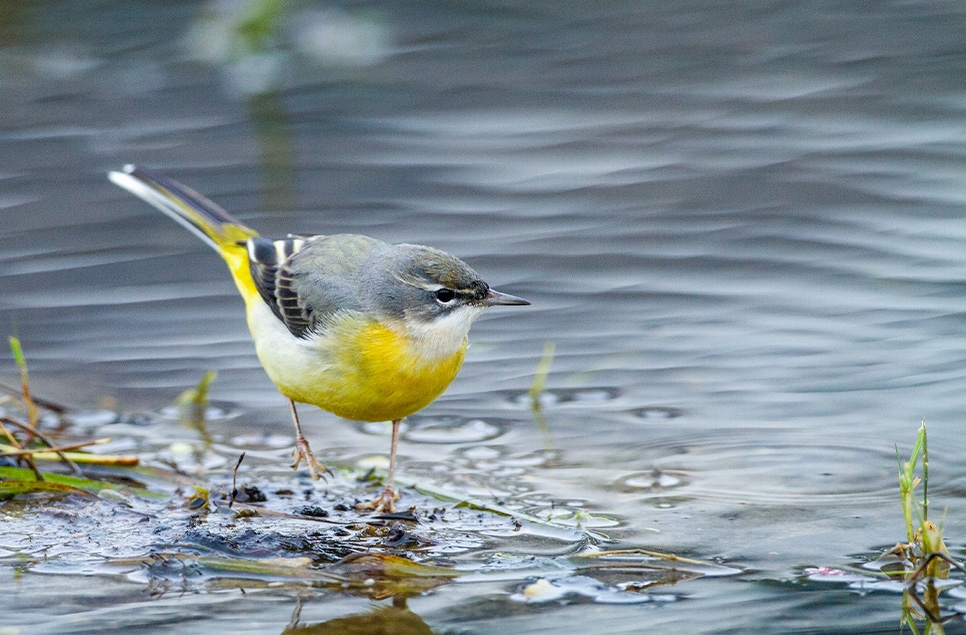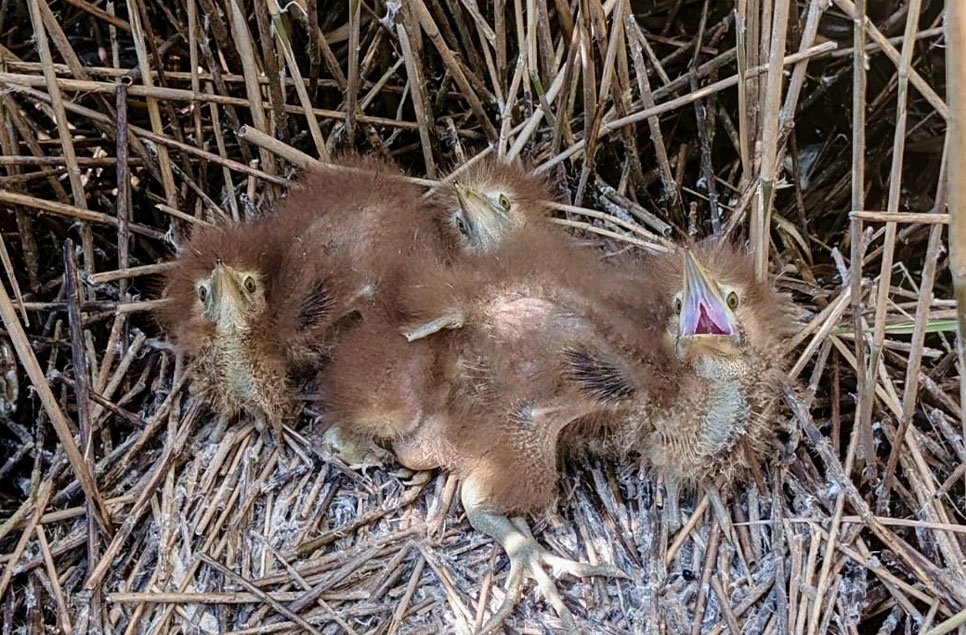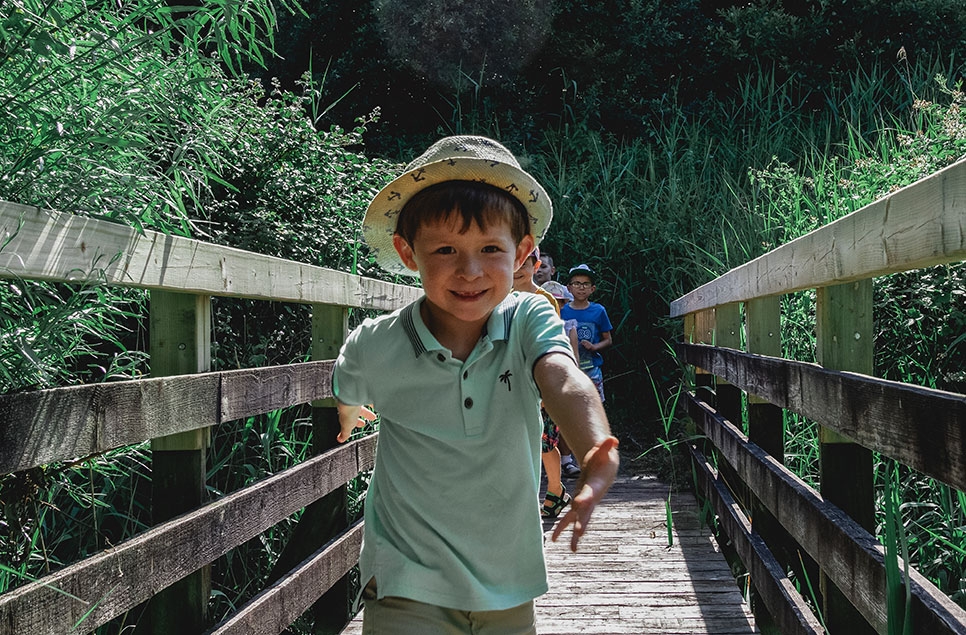Creating a new generation of nature lovers
Each year Generation Wild connects thousands of children and families from economically disadvantaged schools and communities with nature. But what are the barriers to creating more opportunities for children from disadvantaged communities to start their journey towards a life-long love of nature?
PhD student Nicola Parkin has been researching the impact of Generation Wild and the role played by teachers in delivering the project. We caught up with her to find out what they’ve been telling her.
What is Generation Wild?
Generation Wild creates lasting and meaningful connections with nature through storytelling and adventure.
Evidence shows connecting with nature makes children feel happier, increases their self-esteem, and improves their behaviour as well as their physical and mental health, as this video shows.
Children from disadvantaged communities often have fewer opportunities to connect with nature. Through Generation Wild, we work with schools, children and families in these communities to inspire the next generation of nature lovers.
We provide the initial spark, by offering schools a free visit to a WWT wetland. But it’s the children’s teachers and families who will ultimately help them create a long-term connection with the natural world. That’s why Generation Wild also supports teachers and family members as they start children on their journey towards a life-long love of nature.
How did you come to get involved?
I worked in preschool and primary education for 15 years and a key part of my practice was facilitating experiential outdoor learning. Some of my most memorable days have been the result of children making amazing discoveries outside: learning what happens when snails mate, and how badgers can eat hedgehogs, despite their prickles. I worked in the Peak District where we were lucky enough to have access to beautiful natural environments. Our school had its own small patch of woodland where we could spend time learning outdoors in all weathers.
I completed a Master’s degree in Psychology and Education in 2020 and was looking for a route into research. So, when Cardiff University advertised a PhD studentship investigating the Generation Wild project, I knew it was the perfect fit for me!
What gave you the idea to do this research?
I work as part of an interdisciplinary team of researchers who are investigating the impact of Generation Wild. Our original focus was outcomes for children: nature connection, wellbeing and care and concern for nature. But it soon became clear from observations of school visits to wetland sites that there was something very interesting about the role played by teachers in engaging children in the project. I guess that was a natural direction for my own PhD research to take.
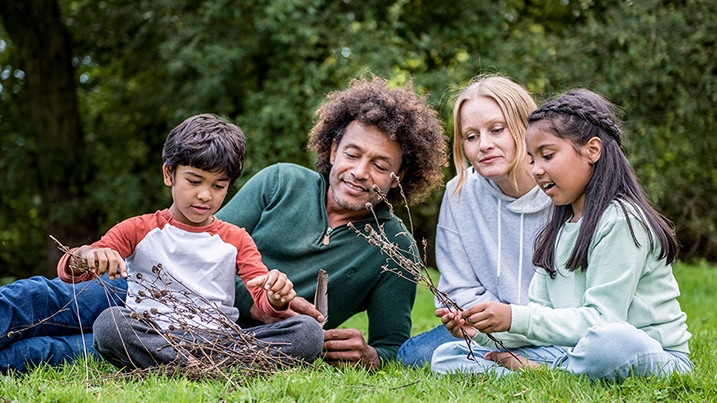
What research have you been doing?
I’ve been exploring how teachers understand their role in facilitating children’s nature connection. I’ve also been looking at the impact of Generation Wild on teachers. I’m particularly interested in the wider context of what’s happening in disadvantaged communities in the UK after a decade of austerity, the COVID pandemic and the more recent cost of living crisis, and how that’s affecting children’s ability to spend time in natural places and form connections to nature.
How have you been doing that?
I interviewed teachers who had taken part in Generation Wild. There were four key messages in what they told me. Firstly, teachers have a great understanding of how children benefit from connection to nature in terms of their wellbeing and behaviour.
Secondly, disadvantage acts as a huge barrier to accessing nature, and teachers work very hard in school to counter this and provide children with opportunities.
Thirdly, there’s a massive ongoing impact of the COVID-19 pandemic, and disadvantaged children have been hit the hardest.
Finally, most teachers would love to spend more time learning outdoors in natural environments. But they perceive significant structural barriers within the wider education system. Unfortunately, this sometimes limits the extent of their ongoing engagement with the Generation Wild project.
What have been the biggest challenges to you in carrying out the research?
I think for me the most difficult thing has been taking the time to process my own feelings about the impact that COVID-19 lockdowns and school closures have had on children and teachers in disadvantaged communities. I’m grateful for the support I’ve had from both my supervisors and former school colleagues.
I’m also extremely aware that my research involves asking very busy professionals to do yet one more thing by responding to my questions, and I’m incredibly grateful to the hundreds of teachers who’ve taken the time to participate in my research over the last two and a half years.
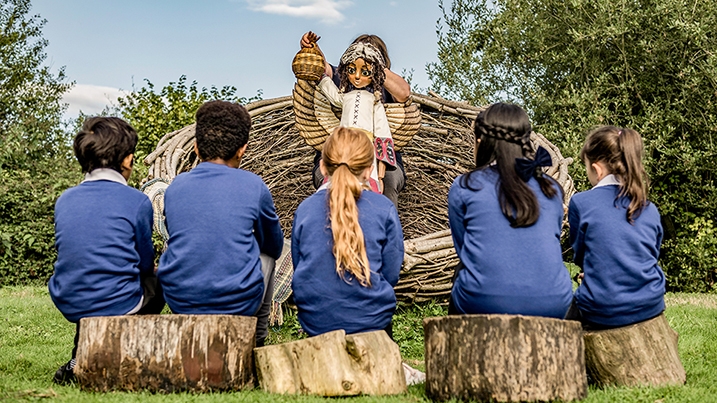
What have been your biggest highlights and favourite bits of your research?
I have loved working as part of WWT and have great admiration for the work that the amazing education teams are doing on each site. Discovering the diversity of WWT’s beautiful wetlands around the UK has been an absolute joy for me.
Can you give us an idea of the sort of results you're finding as you start to write up your research?
There are hopefully several academic papers coming over the next year or so, and I don’t want to pre-empt them by going into too much detail. But we have some great data about the impact of Generation Wild on both children and teachers.
What have you discovered that has most surprised you?
As someone who has been immersed in education for the last 15 years, I’m astonished how little is understood about the realities of teaching in disadvantaged communities. I see a key part of my role as trying to bring together everything I’ve learned as both a teacher and scientist.
I also continue to be astonished by the sheer good will and enthusiasm of so many teachers and teaching assistants who are working incredibly hard in the most difficult circumstances.
How do you hope your research will be used?
I’d love to see our new government bring about substantial changes to education. I think my research will provide important evidence for this. Two key areas for me would be ensuring access to greenspaces in the grounds of every school, and mandating outdoor learning for pupils of all ages, as there’s currently no requirement for outdoor learning for children older than five years.
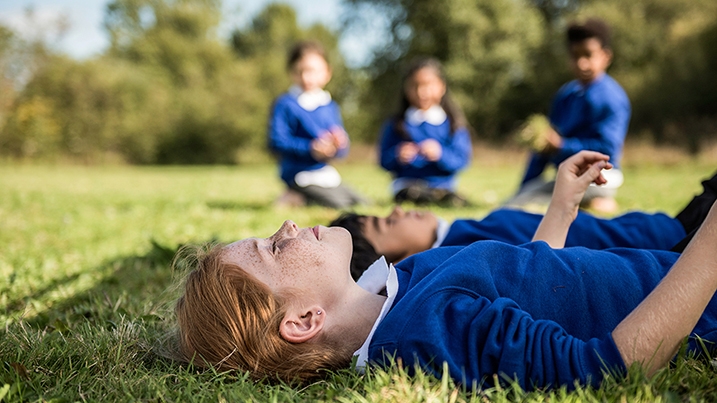
Why is this research important and how will it be used?
Connecting children to nature matters. Both for those children’s own health and wellbeing, but also for the future of our planet. We need to make rapid changes to our lifestyle and behaviour if we are to limit climate change. Enabling children to form a connection to their local nature has a vital role to play in that.
What's next for Generation Wild?
So far, Generation Wild has engaged 45,000 children with nature. Collectively they have completed over 150,000 nature activities back in their local communities. Over 7,000 children have gone on to become Guardians of the Wild and pledge their help to nature, by doing 10 nature activities.
Generation Wild has now been funded for a further 3 years and will reach a further 45,000 children across our 7 sites! We also have exciting plans to develop our storytelling and incorporate some escape room-type problem solving activities throughout the day.
